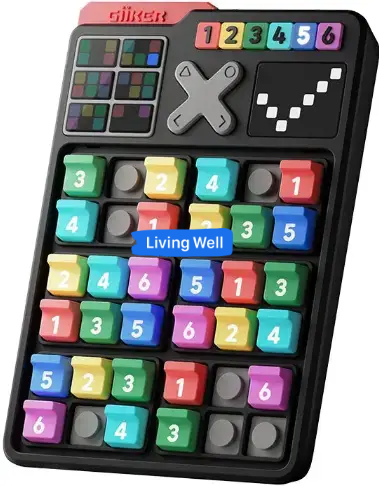Non-allergic rhinitis—vasomotor rhinitis
Some people claim to be allergic to cold air, such as sneezing 2-3 times after getting up in the morning or entering/exiting air-conditioned rooms or heated rooms and encountering cold air, always sneezing and having a runny nose. So, are they suffering from allergic rhinitis? Today, let's talk about it.
There is a type of "allergic rhinitis" without allergens, called vasomotor rhinitis.
What is vasomotor rhinitis?
Vasomotor rhinitis is a nasal disease caused by the imbalance of nasal mucosal blood vessels and gland function induced by neurological dysfunction or external stimuli. It is a non-allergic, non-infectious inflammation of the nasal mucosa.
Its symptoms are very similar to allergic rhinitis, including nasal itching, sneezing, clear runny nose, nasal congestion, etc., and once away from triggering factors, the symptoms will disappear quickly. Some friends mistakenly believe it is allergic rhinitis or a cold caused by catching a chill. So what are the differences?
-
Allergic rhinitis has positive results in allergen tests, and specific serum IgE is positive, while vasomotor rhinitis is negative. Allergic rhinitis is mostly seasonal, usually occurring before the age of 20, with episodic sneezing, lasting from several to dozens of sneezes in a row, accompanied by itching in the nose, eyes, and throat. Vasomotor rhinitis mostly occurs after the age of 20, more common in females, with generally 2-3 sneezes.
-
Colds often occur after exposure to cold and are often accompanied by sore throat, headache, fever, etc. The symptoms persist, with a duration of about 1 week, and later the nasal discharge becomes white mucus or yellow purulent mucus. Whereas vasomotor rhinitis is easily triggered by certain factors, with clear nasal discharge, and the symptoms disappear when the triggering or stimulating factors are relieved.
What are the common causes or triggers of vasomotor rhinitis?
The etiology of vasomotor rhinitis is complex, generally considered to be related to autonomic nervous system dysfunction, psychological stress, endocrine disorders, and external factors such as cold air, odors, tobacco smoke, etc.
-
Psychological and emotional factors: Repeated stimulation such as mental tension, excessive fatigue, fear, resentment, depression, etc., can cause nasal reactions in patients.
-
External stimulus factors: Sudden changes in temperature and humidity, such as seasonal changes, air conditioning, waking up, exercise, etc., can trigger attacks. Air pollution, such as smoke, dust, alcohol, and other chemical stimuli, can also induce attacks. Immediate onset of paroxysmal sneezing, accompanied by abundant watery nasal discharge, sometimes mistaken for allergic rhinitis.
-
Idiopathic reactions: That is, no suspicious triggering factors are found. Patients often have watery nasal discharge, nasal mucosal edema, and may be accompanied by nasal polyps or nasal polyps. Possible triggers: endocrine dysfunction, drug factors, infection factors, etc.
In simple terms, if you smell a special odor, encounter sudden changes in temperature, or experience high psychological stress, or eat spicy food, and then suddenly experience symptoms such as nasal congestion, runny nose, and sneezing, it indicates that you may have vasomotor rhinitis.
Although vasomotor rhinitis can quickly relieve symptoms after removing triggering factors, due to long-term nasal congestion and runny nose, being in a state of chronic inflammation irritation, patients may feel heavy-headed, decreased sense of smell, and even develop sinusitis and nasal polyps.
So how is vasomotor rhinitis treated?
Treatment mainly includes drug therapy, non-drug therapy, and surgical treatment.
-
Drug therapy:
-
Nasal corticosteroids can improve patients' symptoms such as nasal congestion, runny nose, and sneezing. Commonly used drugs include fluticasone propionate nasal spray, budesonide nasal spray, mometasone furoate nasal spray, etc.
-
Antihistamines can significantly relieve symptoms of nasal itching, runny nose, and sneezing. Commonly used drugs include levocetirizine hydrochloride, loratadine, etc.
-
Nasal anticholinergic drugs can relieve severe runny nose symptoms. Commonly used drugs include ipratropium bromide, etc.
-
Nasal decongestants can alleviate nasal congestion symptoms. The continuous use of this drug should not exceed 7 days, and it is contraindicated in children under 2 years old. Commonly used drugs include oxymetazoline nasal drops, xylometazoline hydrochloride nasal spray, phenylephrine hydrochloride nasal spray, etc.
-
-
Non-drug therapy can be adopted as follows:
-
Avoid triggering factors: Avoid stimulating factors such as cold air and odors, reduce the inhalation of tobacco smoke, etc., and wear masks to avoid inhaling dry cold air.
-
Nasal irrigation: Use a special nasal irrigation squeeze bottle, fill it with saline solution to rinse the nasal cavity, perform nasal cavity care at home daily, which can effectively improve nasal ventilation.
-
Maintain a healthy lifestyle: Adequate sleep, appropriate exercise, and a balanced diet can improve the body's immunity and prevent the onset of vasomotor rhinitis.
-
Psychological adjustment: Learn to adjust psychological stress, relax, find methods suitable for relieving stress, such as listening to music, jogging, etc., to avoid triggering vasomotor rhinitis due to emotional tension.
-
-
Surgical treatment: For some severe cases, such as symptoms not controlled after conservative treatment for more than 1 year and trending towards worsening; obvious anatomical deformities affecting ventilation or sinus drainage; irreversible pathological tissue such as hypertrophic nasal mucosa or large nasal polyps, surgical treatment may be considered.
 1
1 1
1